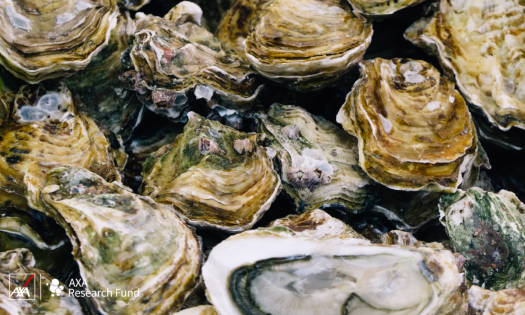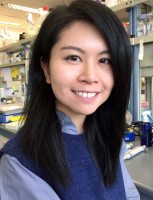Chronic & Non Communicable Diseases
Medical Treatment & Drug Development
Allergies
Vaccines
Post-Doctoral Fellowships
Switzerland
A DNA vaccine for shellfish allergy
Allergen immunotherapy, also known as allergy shots, is a form of vaccination for allergic diseases.
Food allergies happen when the immune system overreacts to a particular protein found in a type of food. Allergy shots consist in giving patients gradually increasing doses of the substance to which they are allergic, leading to desensitization or even tolerance. Antiallergic DNA vaccines use the same mechanisms, but instead of the allergen itself, this type of immunotherapy involves the introduction into the body of plasmid DNA encoding for a less dangerous form of the allergen. « This novel method bears substantial benefits compared to conventional immunotherapy. In particular, it reduces the risk of anaphylactic shock during treatment and only requires two or three shots, whereas previous methods using native protein allergens required prolonged treatment duration », explains Dr. Christine Yee Yan Wai. Recognising the potential of this novel method to treat shellfish allergies, the researcher focused her PhD on developing an effective DNA vaccine and testing it on animal models with induced allergy. « Upon identifying the protein tropomyosin as the major shellfish allergen, we constructed MEM49, a hypoallergen with markedly diminished allergenicity. The delivery of MEM49-encoding DNA vaccine to mice pronouncedly ameliorated their allergic responses towards tropomyosin », she reports.
Developing an FDA approved DNA vaccine for shellfish allergies
« This project’s objective is to make the same thing feasible in humans », says Dr. Christine Yee Yan Wai. « Our aim is to construct a new DNA vaccine and adapt it to the standards of the U.S Food and Drug administration (FDA) ». To achieve their goal, Dr. Christine Yee Yan Wai and her team will first develop three new and clinically applicable constructs of the vaccine. Then, they will look at how theses vaccines work with human cells in vitro. « We are going to look closely at the mechanisms, look deep down into the cells and into the gene expression », she specifies. One of the most important aspects of the project is indeed its ambition to gain a better understanding of how DNA vaccines affect the immune system precisely. Lastly, once the “best” construct of the DNA vaccine is identified, it will be tested on mice models to assess its biodistribution, toxicity, safety and dose-dependent efficacy.
Severe shellfish allergy is a frequent, long-lasting and life-threatening disorder. Living with it significantly affects patients’ physical and social functioning, as well as their mental health. In Asia, where it is the most important food allergen, its prevalence is becoming worryingly high, especially in school children. Developing an effective treatment strategy is crucial if we want to improve the patients’ quality of life. Furthermore, the impact of food allergy on the economy is vast and growing, due to the heavy burden on health care expenditures, workplace, food industry and food regulatory agencies. Dr. Christine Yee Yan Wai’s project will not only help develop a safe and effective treatment but also provide important information for designing new therapeutical approaches for allergic patients in general.
Shellfish allergies: can they be treated?
Discover an article about Christine's project research
ARTICLE

Christine
YEE YAN WAI
Institution
Faculty of Medicine
Country
Switzerland
Nationality
Hong Kong
Related articles
Medical Treatment & Drug Development
Terresterial Biodiversity
Agriculture, Crops & Soil Health
Biotech- and Nanotechnology
Insects & Microorganisms
Vaccines
Post-Doctoral Fellowship
Argentina
Harmless and Eco-Friendly Solution as an Alternative to Replace Synthetic Agrochemicals
Agrochemicals were introduced to protect crops from pests and enhance crop yields. However, they have become a long-standing concern due... Read more

Johan
RODRIGUEZ MELO

